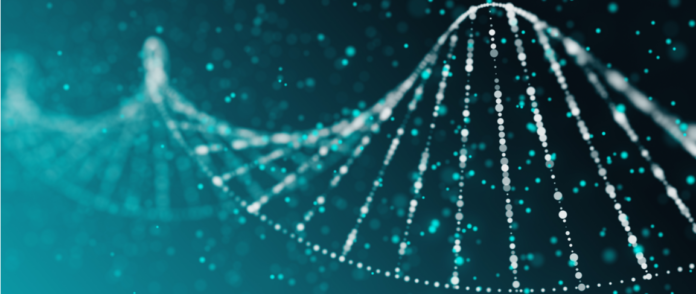
A tech startup called Carverr is offering customers the ability to store their private cryptocurrency data inside a micro tube of synthetic DNA. Cnet reports that a growing number of companies like Carverr are using encrypted synthetic DNA storage to help customers protect highly sensitive information. 28 crypto customers have already signed up to have their private keys encoded using Carverr’s DNA storage protocol. What’s more, this cutting edge technique may provide the solution to the data storage shortage concerns of the future.
How It’s Done
The service costs $1,000, and as crazy as it sounds, Carverr CEO and Co-Founder Vashaal Bhuyan sees DNA crypto key storage as just a different type of encryption tool—”one that will last longer and could be more secure than saving your account details on a hard drive,” writes Cnet.
“DNA is the only thing that won’t become obsolete,” said Bhuyan. “So the way I look at it, this is a trust or 401(k) that you can allocate some of your assets to and keep for a very, very long period of time.”
The experts at Carverr are able to store data in a plastic micro tube of DNA by using a language conversion system. Computer data is written in a binary language of ones and zeros. DNA, on the other hand, is made up of a four letter system consisting of A, T, C and G. These letters represent the nucleotides that link together to form the DNA code.
To translate binary code into DNA, Carverr uses a conversion system. As a simple example, if A=00, T=01, C=10 and G=11, then the string 11000101001000 would translate to GATTACA.
The whole process breaks down into translating the binary data code of someone’s crypto keys and ‘printing’ a translation onto a strain of synthetic DNA stored in a small micro tube. The DNA information can be translated back into binary by Carverr at the request of its owner.
According to Cnet, Carverr is attracting big money crypto investors who are looking for effective long-term solutions in securing their crypto key information.
“Store the wallet information on a hard drive, and something may happen to that drive in 20 or 30 years that makes it hard to access or that corrupts it,” writes Cnet. “Store it in DNA, and it could last generations. Labs will always have the technology to read DNA.”
DNA and the Future of Data Storage
DNA storage is certainly on the cutting edge, and now anything can be stored in DNA, including moving clips, operating systems and even gift cards. However, there is a catch: the process is extremely expensive. It can cost up to $7,000 to have just 2 megabytes of data encoded into DNA and another $2,000 to retrieve it.
Despite this, many believe that DNA storage could act as an important solution to the growing data shortage problems of the modern age. Research predicts that by 2040, humanity will not have enough microchip-grade silicon to store all the data we will be producing (160 trillion gigs a year by 2025).
However, just one gram of synthetic DNA could theoretically store up to 215 petabytes of information.
“That’s over 100 million movies in something that’s smaller than a jellybean — and it lasts hundreds of years,” writes Cnet.
So while prices still remain too high for ordinary users, high-rolling crypto investors could be playing an important in role in preparing synthetic DNA for becoming the big data storage solution of the future.
Suggested Reading : For more affordable ways to store your cryptocurrency keys, check out our picks for the best cryptocurrency wallets.
Infinite Layers of Security
Carverr uses a complex algorithm for translating its stored synthetic DNA into binary code. However, this is only the top layer of security. If someone were to steal your synthetic DNA and somehow discover Carverr’s translation algorithm, they would still have all their work ahead of them.
This is because Carverr recommends that its customers don’t have their actual private keys encoded into DNA, but rather an encryption of their private keys—meaning any potential hackers would need to steal the DNA, discover the secured translation protocol used by Carverr in creating the DNA, find equipment to analyze and translate the DNA, and then finally solve the encryption code linking back to your private keys.
Good luck with that.
“It’s the final insurance policy,” said one anonymous Carverr customer. “And the last line of defense if the other backup solutions fail.”

Unhashed.com is author of this content, TheBitcoinNews.com is is not responsible for the content of external sites.
Our Social Networks: Facebook Instagram Pinterest Reddit Telegram Twitter Youtube











